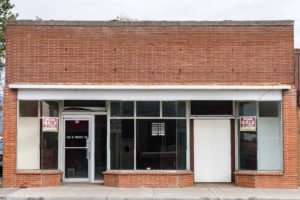
Generating upwards of £100 billion a year, the UK tourist industry sets the gold standard when it comes to hospitality. To maintain those high standards – attention has to be paid to the finest of details, from the smile at reception to the complimentary breakfasts and extra pillows.
However, an aspect of hotel operations that is often neglected is that of hotel security. Sometimes treated as an afterthought, many hotel operators decide against prioritizing safety and security until it becomes too late.
Crime and safety at hotels
While hotels can be a haven and safe space for weary travellers, they can also attract unsavoury elements of the criminal underbelly. Hotels are made to be welcoming environments, which means access can be all too easy for thieves looking to steal high-value goods from unsuspecting guests. Hotels may also be a victim of other common crimes like vandalism and violence and have their guests’ safety threatened by unwanted guests or trespassers.
How to maintain safety standards at hotels
One solution for hotels looking to deal with unwanted visitors is to employ manned guarding. However, this can prove to be a complicated solution. While having someone at the front door to check the ID cards of guests, or request reservation names can help stop intruders, it also creates an unfriendly atmosphere and guests may even be offended by being asked. In an age, where review sites like TripAdvisor can make or break reputations, it is important to find more nuanced solutions.
Access control equipment
One such solution is to opt instead for access control equipment. By providing all guests with key cards to access stairways and their rooms, you remove the need to check the credentials of each guest. Guests can be safe in the knowledge that their belongings are secure, intruders are unable to easily gain access to unathorized areas, and you avoid the risk of upsetting your patrons.
Of course, not all intruders will try to gain access to your hotel through the front door. Particularly at large hotels, or those that cater to business travellers, there can be many different entry and exit points. It is important to have access control equipment fitted for those areas too.
Hotel Parking
For hotels that have underground parking, security practices should extend there too. This may come in the form of barriers, bollards, or high-tech solutions like automatic number plate recognition systems. Guest vehicles can be a high prize for criminal gangs, and even if they are not stolen, they may be vandalised or goods taken from inside.
The risks to hotels are numerous and should not be underestimated. The best place to begin is with a thorough risk assessment that takes into account the nature of your operations and where you may be vulnerable.
Here at Gateway Automation, we can provide you with a free, no-obligation quotation and feasibility survey. We also offer a nationwide reactive call-out service to deal with any equipment issues and are proud to be Gate Safe accredited. Call us today on 01522 682255 for more information.


Recent Comments